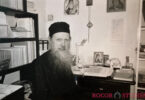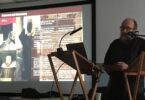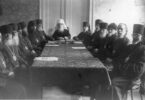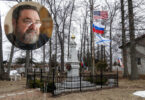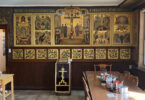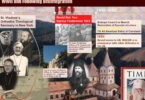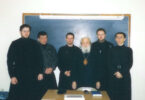The Council of Bishops of the North American Metropolia concluded on this day in 1943.
On September 8, I wrote about the Council of Bishops in Moscow that elected Metropolitan Sergii (Stragorodskii) as patriarch. Then, on October 21, I wrote about the Bishops’ Conference organized by the authorities of the Third Reich in Vienna, which refused to recognize the canonicity of the election in Moscow. Now we will look at what happened regarding the Moscow election in the US.
At the Sixth All-American Sobor in New York in 1937, the North American Metropolia decided “to retain her administrative autonomy while maintaining close relations with the ROCOR Synod and being accountable to it only in matters of faith” (“The 6th All-American Sobor,” oca.org). Following this decision, the ROCOR bishops in America joined what, from the point of view of the Russian Church Abroad, was the North American Metropolitan District within the ROCOR.
Three ROCOR hierarchs – Archbishops Vitaly (Maksimenko) and Joasaph (Skorodumov), and Bishop Jeronim (Chernov) – participated in this council. The election of Patriarch Sergii was recognized as valid. On November 11, Metropolitan Theophilus issued a decree with orders to commemorate Patriarch Sergii, Metropolitan Anastassy, Metropolitan Theophilus, and a local bishop.
The subordination of the ROCOR bishops in North America to Metropolitan Theophilus resulted from the reconciliation in the Russian diaspora in Serbia in 1935. After the US entered the war against Nazi Germany in 1941, it was disloyal to maintain relations with anyone behind the frontlines other than through Red Cross. This means that any information about the Vienna conference disseminated by the Germans would have been treated as Nazi propaganda.
Like many in the Russian emigration, the ROCOR bishops hoped the Germans would destroy Bolshevism and support free Russia. With this in mind, Archbishop Vitaly (Makismenko) of Jersey City petitioned President Roosevelt against helping the USSR.
During World War II, most of the ROCOR was in territory controlled by Nazi Germany and its allies. Therefore, parishes in Geneva and London were not able to communicate with Metropolitan Seraphim (Lukianoff) in Paris, and Archbishop Vitaly reluctantly accepted them under his temporary supervision.
The decree to commemorate Patriarch Sergii caused division between two ROCOR clergymen in the UK: Archpriest Michael Polsky and Archimandrite Nicholas (Gibbes). The former subscribed to the decision of the Vienna Bishops’ Conference, whereas the latter insisted on following the decree of the North American Metropolia.
Relevant Links:
Nicolas Mabin, “Archimandrite Nicholas Gibbes: From the Russian Orthodox Church in Exile to the Moscow Patriarchate,” Historical Studies of the Russian Church Abroad.
Bishop Jeronim (1946), “The Current State of the Russian Church Abroad,” Historical Studies of the Russian Church Abroad.”
Deacon A. Psarev, “Archbishop Vitaly (Maximenko). An Historical Portrait on the Occasion of the 50th Anniversary of His Repose,” Historical Studies of the Russian Church Abroad.
Seth V. Davidenko, “Archbishop Vitaly Maximenko and the North American Metropolia: Based on His Correspondence,” Historical Studies of the Russian Church Abroad.
Source:
Monk Benjamin (Gomarteli), “Letopis’ tserkovnykh sobytii nachinaia s 1917 goda (1939-1949)” [Timeline of the Church Events Beginning from 1917.Part III. 1939-1949].


